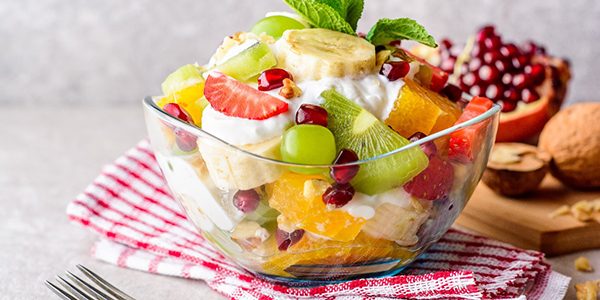Breaking Up with Sugar
After years of warnings and many studies, most Americans agree that sugar isn’t good for you. But we tend to be fuzzy on the details, and that makes it hard to act. Is all sugar bad? Is it addictive? What about fruit? Best to check the science for logical steps towards better health. The good news: It isn’t necessary to forsake all sugar.

Just say no to added sugar
Added sugar, most often fructose, is the focus of most research linking excessive sugar consumption to addictive behaviors and poor health. Studies have connected excessive sugar consumption to adverse health conditions including obesity, metabolic syndrome and inflammatory diseases.
Research has also found that excessive sugar triggers reward systems, which leads to compulsive eating in a way that parallels consumption of drugs in addiction.
Added fructose is associated with many more health risks than glucose. Fructose can increase food-seeking and lead to fat production and storage. It may also be related to neurodegenerative inflammatory diseases like diabetes and Alzheimer’s.
Added sugars can be hard to identify. On a list of ingredients, they may be listed as sucrose (table sugar), corn sweetener, high-fructose corn syrup, fruit-juice concentrates, nectars, raw sugar, malt syrup, maple syrup, fructose sweeteners, liquid fructose, honey, molasses, anhydrous dextrose or other words ending in “-ose,” the chemical suffix for sugars. If any of these words are among the first few ingredients on a food label, the food is likely high in sugar.
Go for natural sweetness
Naturally occurring sugar is found in foods that contribute to good health, provide stable energy and balance metabolism. Fruits, for instance, are full of important nutrients. They also contain fiber, which slows the rate that sugar is digested and absorbed. Fiber also helps you feel full, which stops you from consuming a lot of sugar in one sitting.
Complex carbohydrates (natural sugar) in whole foods like vegetables, legumes, fiber-rich grains and nuts are digested in a way that minimizes inflammation and provides sustained energy without compromising health. Rather than compromising health, they promote it.
When you rule out added sugar, there are still tasty options to satisfy your sweet tooth:
- Plain yogurt with fresh fruit instead of sweetened yogurt.
- Avocado instead of mayo.
- Salsa instead of ketchup.
- Oil and vinegar with herbs and lemon juice rather than processed salad dressing.
- Coconut water for sports drinks.
- Sparkling water (sweetened with fruit) instead of soda.
- Cinnamon for sugar.
- Fruit for dessert.
Discover Similar Stories
Choose a topic below to read more stories like this one.




